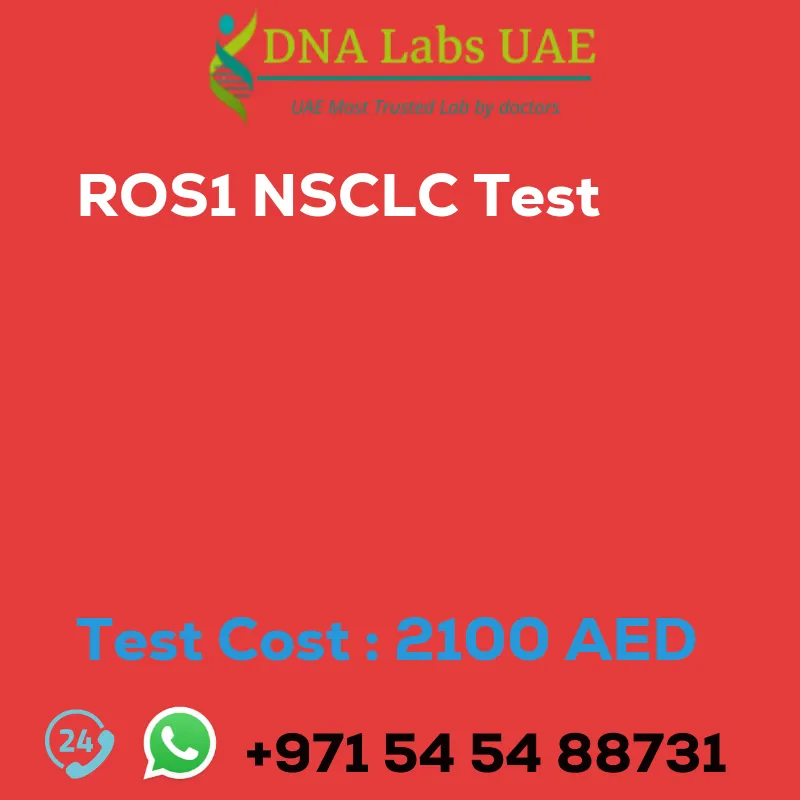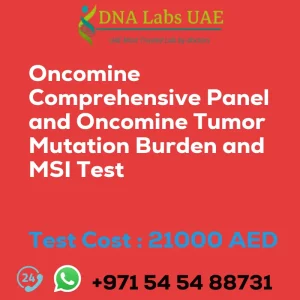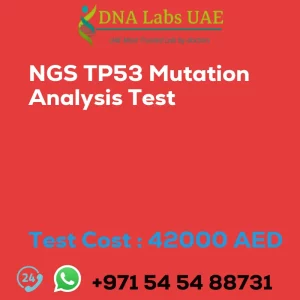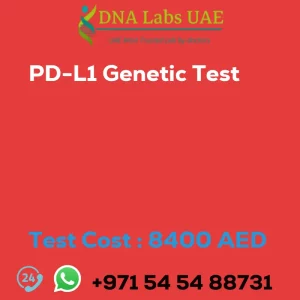ROS 1 NSCLC Test – Cost, Symptoms, Diagnosis | DNA Labs UAE
Test Name: ROS 1 NSCLC Test
Components: Paraffin embedded tissue blocks
Price: 2100.0 AED
Sample Condition: Tumor tissue
Report Delivery: 7-8 days
Method: FISH
Test Type: Genetics
Doctor: Oncology
Test Department:
Pre Test Information: ROS 1 (NSCLC) can be done with a Doctor’s prescription. Prescription is not applicable for surgery and pregnancy cases or people planning to travel abroad.
Test Details
ROS1 (ROS proto-oncogene 1) is a gene that encodes for a receptor tyrosine kinase protein involved in cell signaling pathways. It is commonly associated with a type of non-small cell lung cancer (NSCLC) known as ROS1-positive NSCLC.
ROS1-positive NSCLC is a subtype of NSCLC characterized by a rearrangement or fusion of the ROS1 gene with another gene, resulting in the overexpression and activation of the ROS1 protein. This genetic alteration is found in approximately 1-2% of NSCLC cases.
ROS1 inhibitors, such as crizotinib, ceritinib, and entrectinib, have been developed and approved for the treatment of ROS1-positive NSCLC. These targeted therapies specifically block the activity of the ROS1 protein, inhibiting the growth and spread of cancer cells.
Patients with ROS1-positive NSCLC typically have a better response to ROS1 inhibitors compared to standard chemotherapy. However, resistance to these targeted therapies can develop over time, leading to disease progression. Ongoing research is focused on understanding the mechanisms of resistance and developing new treatment strategies for ROS1-positive NSCLC.
| Test Name | ROS 1 NSCLC Test |
|---|---|
| Components | Paraffin embedded tissue blocks |
| Price | 2100.0 AED |
| Sample Condition | Tumor tissue |
| Report Delivery | 7-8 days |
| Method | FISH |
| Test type | Genetics |
| Doctor | Oncology |
| Test Department: | |
| Pre Test Information | ROS 1 (NSCLC) can be done with a Doctors prescription. Prescription is not applicable for surgery and pregnancy cases or people planing to travel abroad. |
| Test Details |
ROS1 (ROS proto-oncogene 1) is a gene that encodes for a receptor tyrosine kinase protein involved in cell signaling pathways. It is commonly associated with a type of non-small cell lung cancer (NSCLC) known as ROS1-positive NSCLC. ROS1-positive NSCLC is a subtype of NSCLC characterized by a rearrangement or fusion of the ROS1 gene with another gene, resulting in the overexpression and activation of the ROS1 protein. This genetic alteration is found in approximately 1-2% of NSCLC cases. ROS1 inhibitors, such as crizotinib, ceritinib, and entrectinib, have been developed and approved for the treatment of ROS1-positive NSCLC. These targeted therapies specifically block the activity of the ROS1 protein, inhibiting the growth and spread of cancer cells. Patients with ROS1-positive NSCLC typically have a better response to ROS1 inhibitors compared to standard chemotherapy. However, resistance to these targeted therapies can develop over time, leading to disease progression. Ongoing research is focused on understanding the mechanisms of resistance and developing new treatment strategies for ROS1-positive NSCLC. |








